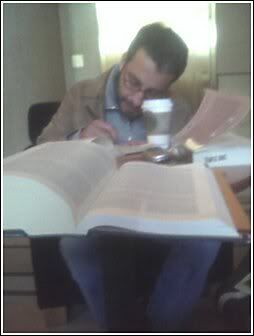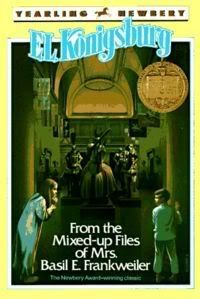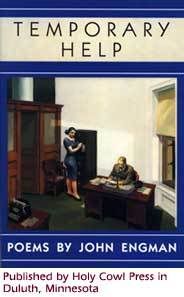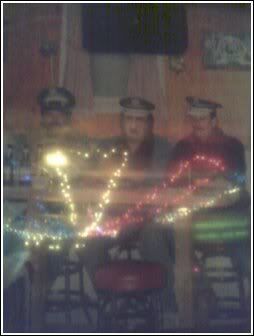You will remain forever the orphan of those adolescent loves you never experienced.
Michel Houellebecq
Wednesday, November 19, 2008
And Thus
Posted by
someone
at
11:52 AM
0
comments
![]()
Monday, October 27, 2008
Name That Tune
Much later, during an uncertain period when I was trying to understand something of myself by selling encyclopedias and medical books in the towns of Guajira, by chance I got as far as that Indian death village. At the window of a house that faced the sea, embroidering by machine during the hottest hour of the day, was a woman half in mourning, with steel-rimmed glasses and yellowish gray hair, and hanging above her head was a cage with a canary that didn't stop singing. When I saw her like that in the idyllic frame of the window, I refused to believe that the woman there was who I thought it was, because I couldn't bring myself to admit that life might end up resembling bad literature so much.
Posted by
someone
at
1:18 PM
4
comments
![]()
Thursday, September 18, 2008
someone wrote this about lorrie moore on amazon.
"She went out of her way to be delightfully "kooky" by, (Oh my God this is SO original), writing a full page of HA!'s. As in "HA!HA!HA!HA!HA!" for a whole page. Yes, to some this may come accross as a truly brilliant idea, a veritable stroke of genius, intelligence, originality and so on, so on. In my case, it came off as the work of a writer suffering from either A) ADD B) Too much cafeine and/or sugar C) Cocaine Abuse."
Thank you, Amazon, and all other web pages, for allowing people to comment. Comments get me through the day.
P.S. I love Lorrie Moore. Ah loht.
Posted by
someone
at
5:03 PM
0
comments
![]()
Tuesday, September 2, 2008
back with the opposite of a vengeance
September Three Years Later
It’s simply
this
You would rather spend another year in Minnesota
working with bottles
than a day like today in Philadelphia, a day like waiting for something to become involuntary
a man to look up your skirt as you bend down to pick up a knife
it is simple really – you don’t need Heidegger to unravel the worry you feel stepping down the subway stairs. You might stop thinking at night
There’s a lot to remember
Remember the day we met for a drink across the street? And moved down the street for a real drink. You let me drive home. But you were on the answering machine
How can Philadelphia feel so lonely when there are just as many people. In the garden tonight a cicada was whirring to the ground. I prodded the desiccated wings and watched the legs tremble
It is simple though my money has gone far, far, far as the couch and he says it’s not serious enough. He says I have choices to make. I said the check's in the mail. I need to find a new head
but in the meantime, I’m planning a party. And I will get drunk and some people will come
And some will snarl at their invitation. And at some point, inexplicably, I’ll start talking about Minneapolis
Posted by
someone
at
10:03 PM
0
comments
![]()
Tuesday, March 18, 2008
Thursday, February 28, 2008
mind is a razorblade
fucking covers: i love them when they're good like the following example.
i can swear as i'm the only one working this bitch.
amd
Posted by
someone
at
3:25 PM
1 comments
![]()
Tuesday, February 19, 2008
slow day at work
http://www.admissions.ox.ac.uk/interviews/tests/philmodlang.pdf
amd
I would like to add the question:
Can your education make you exponentially dumber [sic] (Hint: I'm thinking of a particular institution)?
Posted by
someone
at
11:57 AM
0
comments
![]()
Tuesday, February 12, 2008
and the way a character goes away
A little after came Glahn, with his rifle under his arm, all ready to go out. He looked gloomy, and did not even say good-morning. I noticed, though, that he had got himself up and taken special care about his dress.
I got ready at once and went with him. Neither of us said a word. The first two birds we shot were mangled horribly, through shooting them with the rifle; but we cooked them under a tree as best we could, and ate in silence. So the day wore on till noon.
Glahn called out to me:
“Sure your gun is loaded? We might come across something unexpectedly. Load it, anyhow.”
“It is loaded,” I answered.
Then he disappeared a moment into the bush. I felt it would be a pleasure to shoot him then—pick him off and shoot him down like a dog. There was no hurry; he could still enjoy the thought of it for a bit. He knew well enough what I had in mind: that was why he had asked if my gun were loaded. Even to-day he could not refrain from giving way to his beastly pride. He had dressed himself up and put on a new shirt; his manner was, lordly beyond all bounds.
About one o’clock he stopped, pale and angry, in front of me, and said:
“I can’t stand this! Look and see if you’re loaded, man—if you’ve anything in your gun.”
“Kindly look after your own gun,” I answered. But I knew well enough why he kept asking about mine.
And he turned away again. My answer had so effectively put him in his place that he actually seemed cowed: he even hung his head as he walked off.
After a while I shot a pigeon, and loaded again. While I was doing so, I caught sight of Glahn standing half hidden behind a tree, watching me to see if I really loaded. A little later he started singing a hymn—and a wedding hymn into the bargain. Singing wedding hymns, and putting on his best clothes, I thought to myself—that’s his way of being extra fascinating to-day. Even before he had finished the hymn he began walking softly in front of me, hanging his head, and still singing as he walked. He was keeping right in front of the muzzle of my gun again, as if thinking to himself: Now it is coming, and that is why I am singing this wedding hymn! But it did not come yet, and when he had finished his singing he had to look back at me.
“We shan’t get much to-day anyhow, by the look of it,” he said, with a smile, as if excusing himself, and asking pardon of me for singing while we were out after game. But even at that moment his smile was beautiful. It was as if he were weeping inwardly, and his lips trembled, too, for all that he boasted of being able to smile at such a solemn moment.
I was no woman, and he saw well enough that he made no impression on me. He grew impatient, his face paled, he circled round me with hasty steps, showing up now to the left, now to the right of me, and stopping every now and then to wait for me to come up.
About five, I heard a shot all of a sudden, and a bullet sang past my left ear. I looked up. There was Glahn standing motionless a few paces off, staring at me; his smoking rifle lay along his arm. Had he tried to shoot me? I said:
“You missed that time. You’ve been shooting badly of late.”
But he had not been shooting badly. He never missed. He had only been trying to irritate me.
“Then take your revenge, damn you!” he shouted back.
“All in good time,” I said, clenching my teeth.
We stood there looking at each other. And suddenly Glahn shrugged his shoulders and called out “Coward” to me. And why should he call me a coward? I threw my rifle to my shoulder—aimed full in his face—fired.
As a man soweth...
Now, there is no need, I insist, for the Glahns to make further inquiry about this man. It annoys me to be constantly seeing their advertisements offering such and such reward for information about a dead man. Thomas Glahn was killed by accident—shot by accident when out on a hunting trip in India. The court entered his name, with the particulars of his end, in a register with pierced and threaded leaves. And in that register it says that he is dead—dead, I tell you—and what is more, that he was killed by accident.
amd
Posted by
someone
at
12:30 PM
0
comments
![]()
Thursday, February 7, 2008
Best Character Ever
One of the universal aspects of genius writing is the quality of introduction that an author gives her readers to the characters. Let's compare some of our favorites on this post.
The perfume that her body exhaled was of the quality of that earth-flesh, which smells of captured dampness and yet is so dry, overcast with the odour of oil of amber, which is an inner malady of the sea, making her seem as if she had invaded a sleep incautious and entire. Her flesh was the texture of plant life, and beneath it one sensed a frame, broad, porous and sleep-worn, as if sleep were a decay fishing her beneath the visible surface. About her head there was an effulgence of a body of water--as if her life lay through her in ungainly luminous deteriorations--the trouble structure of a born somnambule, who lives in two worlds--meet of child and desperado.
The gown fell gauntly from her shoulders, across her fallen breasts, then tightened upon her paunch and fell again, ballooning a little above the nether garments which she would remove layer by layer as the spring accomplished and the warm days, in color regal and moribund. She had been a big woman once but now her skeleton rose, draped loosely in unpadded skin that tightened again upon a paunch almost dropsical, as though muscle and tissue had been courage or fortitude which the days or the years had consumed until only the indomitable skeleton was left rising like a ruin or a landmark above the somnolent and impervious guts, and above that the collapsed face that gave the impression of the bones themselves being outside the flesh, lifted into the driving day with an expression at once fatalistic and of a child's astonished disappointment, until she turned and entered the house again and closed the door.
Posted by
someone
at
1:40 PM
1 comments
![]()
Tuesday, February 5, 2008
Ansatz
zootsoot2006
+1
Reply
You go into any mental asylum you're bound to meet one guy who thinks he's Jesus. What is so amazing is that this guy had such a successful career. He truly muddied the line between the mad and the sane. I think that can only be a credit to him.
VorticD
-1
Reply
klinski is ein psycho der idiot ich hoffe der stirbt qualfoll
michets82 +10
Reply
zu spät...
p.s.
amd
Posted by
someone
at
9:08 AM
1 comments
![]()
Sunday, February 3, 2008
Thursday, January 24, 2008
Country, and we like it that way.
Posted by
someone
at
12:05 PM
0
comments
![]()
Monday, January 21, 2008
Malibooty
http://www.newyorker.com/reporting/2007/12/24/071224fa_fact?currentPage=all
Thinking now of a quote I read ...
"The author, then, started life as a line of bullshit and to bullshit the author has returned. Ashes to ashes."
--
So I drafted a plot (with appurtenances) of an Entourage episode. The highlights indicate the revised text. This is the version I got back from my editor. *sigh* The original text can be found below.
In a major role-reversal, Vince and the guys are crashing at Drama's place. While Turtle tries to identify the senior Chase's whacked-out health food - "What's a psyllium husk, anyway?" - the man of the house returns, offering bagels and good news. Donna Devaney, an L.A. party girl from Drama's surprisingly lengthy past, has finally agreed to hook up with him. Plus, she has a hot friend for Turtle. Vince and E aren't sitting so pretty with the Medellin cut, so E tries giving Walsh some notes to spruce up the film. Predictably militant about protecting his vision, Walsh won't cooperate, and making things worse, has already sent a print to the Cannes Film Festival. E runs to Ari for a solution and settles on the option to ditch Walsh by selling the movie to Harvey Weingard.
Vince rolls with his brother and Turtle, promising not to steal their thunder, and they couldn't be more thrilled when he hops out at a stop light to join a random hottie in a convertible. She takes him to the home of her "family friend" to go swimming, which turns out to be Dennis Hopper's beach house. Hopper and his buddies tempt Vince into placing a $100,000 bet - that he can't cover - on a soccer game. The future holds less uncertainty for Drama and Turtle; their cougars are ready to pounce. Too bad for Turtle, Donna's "hot" friend Marjorie is twice his age, not to mention twice his size. But, in a typical turn of Drama's luck, Donna decides at the last minute to opt for Turtle, leaving Drama manhandled by Marjorie in the hot tub. Vince's soccer win comes through, infusing him with some much-needed cash, but he and E still differ on the direction they want to take 'Medellin.' When E says Harvey made an offer of $25 million, Vince throws him for another loop: Cannes accepted the film. "Maybe you should watch it again," Vince tells him.
ORIGINAL:
In an obviously insincere and illegitimate turn, Vince and his team of seventh grade intellects decide to open and develop a non-profit shelter for the homeless. While Turtle tries to identify the first of several economic bubbles that led us down this highway of shit - "What's a subprime mortgage, anyway?" - the man of the house returns, offering bagels and good news. Donna Devaney, an L.A. party girl from Drama's pointless and vacuous past, has made a donation of six million dollars towards their organization's endowment. Plus, she has continuous income pouring down on her from her investments in Finance, Insurance and Real Estate. Well, not so much real estate. Vince and E aren't sitting so pretty with the tax cuts for the wealthy, so E tries giving Walsh some advice on how to live humanely and meaningfully in an increasingly disproportionate society. Historically militant about his increasing anxieties and dystopic vision, Walsh won't reason, and making things worse, has already lost hope in the power of reason and has begun speaking of the cult of reason's responsibility for world wars. E runs to Ari for a temporary, but material, solution to a metaphysical problem and settles on the option to read more and think more.
Vince, his brother, and Turtle drive up and down Sunset Blvd, handing out hot meals to the displaced and hungry, promising not to compound the problem of homelessness through the creation of a dependency on temporary aid. They couldn't be more thrilled when he hops out and approaches several local businesses, securing the written agreement of over 85% of the area to provide assistance, jobs and donate a portion of their profits to food/shelter/general care to those in need. A woman working for a 501C3 called Up From Office Chairs! asks Vince if he wants to collaborate on a fundraiser. She takes him to the home of her "family friend" to do some groundwork, which turns out to be Dennis Hopper's beach house. Hopper and his buddies tempt Vince into placing a $100,000 bet - that he can't cover (along with 98% of the world's population) - that Hillary's going to get the nomination and it's going to be HRC vs. McCain. He also bets him that McCain's only running so he can cross it off his Bucket List, once and for all. The future holds the same degree of uncertainty for Drama and Turtle (as it does for everyone, everywhere); their 'consciousness raising' San Diego Zoo Wild Cats of the Brush promotional exhibit is off and running. Too bad for Turtle, his "adopted" cat has fallen ill with a mysterious malady, not to mention has recently mauled one of the handlers. But, in a typical turn of Drama's luck, Turtle's cat pulls through and even ends up saving a small child who fell into the cage while his parents were arguing. The cat approached the child, licked his wounds and carefully carried him between his jaws to the outstretched arms of the zoo keeper and then to the hysterical mom and shell-shocked dad, leaving Drama to wonder about the theodicean nature of life. Vince's soccer win comes through, infusing some of the 30+ million Americans who have been left behind with some much-needed cash, but he and E still differ on the direction they want to see the next economic bubble manifest (Vince is calling for biofuels and the support of environmentally conscious venture capitalists). When E announces that through grant-writing exercises he was able to get a super grant from Verizon, valued at $25 million, Vince throws him for another loop: "We're all going to die someday." Vince stares in the distance. "Yeah," he ponders, "you're right. Maybe we should say fuck it and start a T-shirt company; our logo will be the Clinton generation children all grown up; ironically posing on all fours, pulling on their shirt sleeves (stained by that afternoon's hot lunch), doing a stag leap in a purple unitard and bifocals, opening their legs and drooling, lolling, rolling, staring into their camera phones, wide eyed and mesmerized by the spandex proletariat…"
amd
Posted by
someone
at
12:19 PM
0
comments
![]()
Saturday, January 19, 2008
Friday, January 18, 2008
uhm,hmm,mmmhmm
Question One:
Question Two: What book is this person not reading?
Question Three: How is this different than American Apparel's ads/photos/prints
Question Four: How is this?
Question Five: And this?
amd
Posted by
someone
at
11:52 AM
2
comments
![]()
Wednesday, January 16, 2008
Up with American Apparel, If I Must
[First, a disclaimer: I have only seen Seasons 1 and 2 of Entourage, and my beef with the show is based on limited knowledge. I have not seen any of the seasons that won all the fancy prizes, so I don't know if the writing grew more complex as time went on. Arguing about AA being "better" or "worse" than Entourage, with citations, is therefore pointless. I would like to discuss, instead, the cultural space that these institutions occupy.]
It is now 2am, officially "super late" by my standard. The one-man audience for the Entourage v. American Apparel (hereafter: AA) throwdown grows impatient, and one hopes never to disappoint the Wag. I still do not know who it was that challenged me to this; as it's part of the charm, I'll choose to remain ignorant. But, the reasons themselves are clear. Both Entourage and AA are LA-based phenomena, both savagely feed from the local culture's chic trough like it was yesterday's tater skins, both equate pop culture's sense of the Beautiful with its notion of the Good, and, finally, both monger the cult of authenticity.* They are therefore hateful to me. But like any good hypocrite, I partake of both with relish. I have watched Entourage and will, in time, watch more. Also, as I write this I am wearing an article of clothing from AA--this red, hooded sweatshirt, staple of my personal aesthetic.
The final likeness, the authenticity-mongering, is where I actually think they differ most significantly. Entourage, I posit, is selling us the same old Hollyworld glamour life that we got, in the 90's, from Beverly Hills, 90210 and Melrose Place, and are currently getting from MTV shows like Newport Harbor and The Hills, except in the latter two the acting is fake (i.e. the "stars" pretend to not be acting). While the MTV shows sell themselves as portraying "real" people who are obviously fake, Entourage uses the Marky-Mark-Wahlberg-created-this-show premise to assert that these fake people are actually "real," as in "the real deal," or, at least, more genuine human beings than the other Hollywoodians, personified by Ari Gold. Entourage banks on the audience loving its characters, and therefore taking stake in their misadventures, because of their Authenticity, personified by Eric "E" Murphy, the show's moral barometer. They did this to us with Fresh Prince of Bel Air, whose tough Philly moral code and softer, bumbling side made him the genuine article. You are meant to relate to this and every other show I've cited because you stand alongside the heroes in moral triumph over fake-ass, plastic corporate culture. Even while you're selling out there's no way you could ever sell out.
Now, what AA does is sell covetousness and nostalgia. They sell us what we want to be like in the most vain corners of our filthy minds: sexy, young, urban. AA sells the counter cultural aesthetic to the mainstream, marked up 300%, no apologies.** The "urban" aspect they promote heavily on their website: all of the clothes are made in Downtown LA, all of the photo shoots done on the premises, all of the models amateurs who often pose pro bono. The look of the models is "urban" as well: vague ethnicities, many shades of brown, dark, curly hair, etc. Their ads, as everyone knows, are erotic. If you're dressing for pragmatism and warmth, you're missing the point. AA also commodified thrift store shopping. For every time you went in a thrift store and were disappointed: if only these pants didn't have a poo stain, if only this shirt was in a different shade of gray. AA is vintage clothes outside of time. No more vintage-style; Vintage is the style, reduced to color, line and form. The wave of the future.  The fashion aesthetic for these people is not a certain cuff, a certain seam, a certain pattern, a certain material. All of those things are basically set, with minor wiggle room. The clothes are cotton, unisex, solid colored (most often primary colors and grays). The fashion is, simply, what is fashionable. With the rise of AA we are seeing a move toward the apogee of fashion in late-stage Capitalism: virtual fashion. The simulacrum of fashion. At American Apparel we sell you solid-colored silhouettes of your remembered self, now with sex. Watch. The style at AA will progress steadily twenty years behind whatever is contemporary.
The fashion aesthetic for these people is not a certain cuff, a certain seam, a certain pattern, a certain material. All of those things are basically set, with minor wiggle room. The clothes are cotton, unisex, solid colored (most often primary colors and grays). The fashion is, simply, what is fashionable. With the rise of AA we are seeing a move toward the apogee of fashion in late-stage Capitalism: virtual fashion. The simulacrum of fashion. At American Apparel we sell you solid-colored silhouettes of your remembered self, now with sex. Watch. The style at AA will progress steadily twenty years behind whatever is contemporary.
Pressed, I choose American Apparel simply because it is much more fascinating. It is more revealing of where we are as a society in the 20-oughts than Entourage is (or was). Entourage pretends to reflect our social mores back at us. American Apparel doesn't bother with all that nonsense. It just reflects reflects reflects reflects. Like the sphere in Michael Crichton's The Sphere. Like the hall of mirrors in Enter the Dragon. Bring on the Nostalgia; this is as real as it's gonna get.
* This phrase belongs, whole hog, to Brandon Holmquest, coiner extraordinaire.
**There is a cognitive dissonance here for me. The AA clothing aesthetic is designed around recalling the colors, cuts, and styles of our youth (or, if you're me, the style of the people about five years older, whose girls you stood really really close to in a crowd and whose boys you postured). There's something uncanny about it all. This sweatshirt I'm wearing, for example, fits like sweatshirts fit me when I was eight or nine, long in the sleeve, tight at the waist, yet the intended efffect is sexual. It's a sexualized version of young me, a curious amalgam that combines two vanities: youth and sex. This line of thought intersects, somewhere, with an essay in the first issue of n + 1, about how the people at McSweeney's are selling us "childhood as a way of life."
Posted by
someone
at
3:31 AM
1 comments
![]()
Thursday, January 10, 2008
I cannot
I cannot begin to handle the second post, but regarding the first:
that neck tie!!!!
#2,#3,#5,#6,#10. Steve, you have this way of expressing indifference that is so life-affirming. I remember it from back in the day when I actually used to speak with you in real life. Usually this is a quality found in slackers of the highest order, but you are a legitimate work horse. Nice contrast my friend. Also, I forgot how I lent my copy of Into the Wild to a friend in 2000. He never gave it back, nor does he speak to me. He hates me I think. His name if you must know is Johnny. I stayed at his house once when I was 'in a fight' with my boyfriend, Ben. They lived in Whitewater, Wisconsin. We were all in college. I thought they were both sweet and vulnerable at the time. In hindsight, they were sort of cruel. Moving on. I would like that book back. The book is excellent. The movie is a piece of garbage. Or at least pretty bad. They take Jon Krakauer right out of it. Or Sean Penn does I guess. Jon's narrative IS the book, the story, the tension and philosophical lens through which all of the events are considered. Sean replaces this with the younger sister's musings.
I have lost a number of books, but I have found a great deal more. My friend Chris used give me books here and there. Once, I was like: stop buying these at an expensive bookstore; I can get them across the street at Magers & Quinn (used bookstore in Minneapolis (now I am sentimental)). He was like, I don't buy them.* This is how I acquired THE COSSACKS, for example.
* http://www.bordersstores.com/stores/store_pg.jsp?storeID=27
Posted by
someone
at
11:32 AM
1 comments
![]()
this is a machine designed for reading a book written by a Cronopio
Posted by
someone
at
10:53 AM
0
comments
![]()
Wednesday, January 9, 2008
de ser...
has pasado a ser una persona indispensable en mi vida
THE ONLY BOOK I MISS
But I guess that's not totally true. I also miss TEMPORARY HELP. I've lent/given it away four times.
And lastly. Any book by one of these guys
In looking for the definition of Cronopio (as in Cronopio carelessness) I came across the quote at the top of the page. It made me wistful... like, there was this boy I met in Bologna, Italy and with whom I hung out. His name was Davide and he was very kind and smart and rare and genuine. He was like my only friend that entire year. We didn't really do anything except listen to music, share awkward silences and smoke pot standing by his bedroom window at his parents' apartment on via delle belle arti, and we talked about poetry and filosofia because that was what he was studying and I am obsessed with death. We weren't a couple or anything; we never 'did anything.' But he gave me small gifts -- mix tapes, necklaces, books... it was really intense in a way and still stirs within me a very physical sense of anguish. The things he gave me before I left are things I still have and sometimes when I open a book I find things he wrote, notes. We spoke via letters and email for a while after and to this day sometimes exchange an email, but it is gone. I know for sure because two years ago we were Instant Messaging (the first and only time I have done this) and it was strange sort of; it sort of highlighted the impossibility of the illusion I'd been harboring. Also, he sent me a picture of himself and he was more handsome than ever and I was like, oh, how does this make me feel? And I felt, well, sort of vaguely nostalgiac I guess--
Anyway, that line (You were once just someone I wrote to...) made me think of these things...
TMI, as they say. Next time I will talk about Anne Sexton's obsession with being admitted to McLean Hospital in Belmont, MA.
-abbi
"there's a chance of rain on Minnehaha Avenue. that's how a poem should start."
Posted by
someone
at
3:24 PM
0
comments
![]()
books i miss
I'm still not ready to write anything about American Apparel. I spoke to a cashier/model at the store in Santa Monica and she told me that the "flagship store" (a real quote, here) is a t-shirt stand on the corner of E. Second Street and South Central Avenue. I checked the website and this address is just a regular American Apparel store in Little Tokyo. Either the cashier/crackhead doesn't know what company she works for, or she doesn't know how to read. So far so good, I guess.
While the research continues, I'll pass the time with the first-annual "Books I've Lost" list: 2007. This is a list of books I own(ed) which went missing in the past 12 months, either because I lent them to someone and forgot who (to whom?), or they were lost by me in my typical Cronopio carelessness.
1. CA Conrad, Deviant Propulsion. I got this book autographed at the book release at the Kelly Writer's House, before I'd ever heard Conrad read. By the time I had my first conversation with him about books, his had gone missing.
2. Robert Creeley, The Island. I'm pretty sure I left this in my old office at Temple. Though Brandon is shaking his head no, I thought it was very good.
3. Julio Cortázar, A Manual for Manuel. I think this book disappeared the same night I threw a house-warming party on 9th Street in South Philly.
4. Vladimir Nabokov, Pale Fire. I'm almost certain Brandon Holmquest borrowed this before I had a chance to finish it. I only read the Introduction, 13 pages of black humor and painfully vivid description. These pages alone could serve as a whole course in dramatic structure. So enjoy it while you can.
5. J.D. Salinger, Franny and Zooey. A friend borrowed this and I never told her I moved to LA. I still haven't. It's gone now.
6. Thomas Bernhard, Old Masters: A Comedy. Assigned by Sandra Newman in a Creative Writing seminar I took with her, but we never read it in class. Very possibly still in a shipping box in the Temple mail room.
7. Roberto Bolaño, Putas Asesinas. Had this book abroad; it may not have made it back.
8. Jaime Bayly, El Huracán Lleva Tu Nombre. You may know him from the movie remake of his La mujer de mi hermano, a shitty soap opera. But this one is an amazing book about a psycho ex-girlfriend. This play off the "mad woman in the attic" trope is from the perspective of a guy who comes out to her. I wanted to translate this one but the author didn't return any of my dozen emails. He's a bigtime TV celebrity in Miami. Oooh...
9. Gabriel García Márquez, Strange Pilgrims and the Spanish original. Counted as one because I want to include...
10. Franz Kafka, The Castle. I began this on the Orange Line in Philly on fine day. I think I lost it transferring to the El.
Adieu, books. Auld lang syne and all that mess.
Posted by
someone
at
12:27 AM
0
comments
![]()





